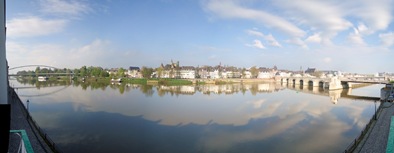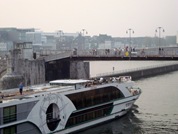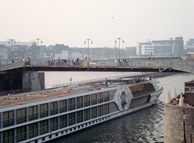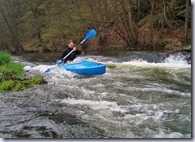 Waar zijn alle de eekhoorns?
Waar zijn alle de eekhoorns?
Where are all of the squirrels?
I was lying in bed listening to the cooing and clucking of pigeons on the rooftops outside when I realized that a I haven’t seen a squirrel in months. Ordinarily my yard is full of them in the US, running along wires, dangling off tree limbs, invading bird feeders. I can’t think of a time I‘ve seen one here beyond the occasional encounter in the park.
It turns out that our normal grey squirrel, above, is unknown here. It’s cousin, the red squirrel, lives deep in the local woodlands and is much less common. In fact, the Dutch Nature Conservation Law, passed in 1994, protects red squirrel because it’s so scarce. Various local groups, like the Squirrel Rescue Foundation, are trying to right the balance (while KLM dispatches 400 of them by mistake…).
Geld bouw op de bomen?
Does money grow on trees?

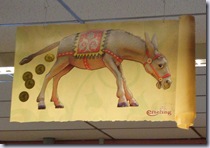
 You may think so as governments around the world ship trillions off to banks. Americans also believe in Pennies from Heaven and Golden Geese. But in Europe, it seems that money issues from the hind ends of livestock. Or so the latest Albert Heijn promotion would have us believe (above, and see the animation for 5 spaarkaarten issued (from the animal) with every purchase, on the website). Curiously, it mirrors a similar stone relief that I found in Dusseldorf last year.
You may think so as governments around the world ship trillions off to banks. Americans also believe in Pennies from Heaven and Golden Geese. But in Europe, it seems that money issues from the hind ends of livestock. Or so the latest Albert Heijn promotion would have us believe (above, and see the animation for 5 spaarkaarten issued (from the animal) with every purchase, on the website). Curiously, it mirrors a similar stone relief that I found in Dusseldorf last year.
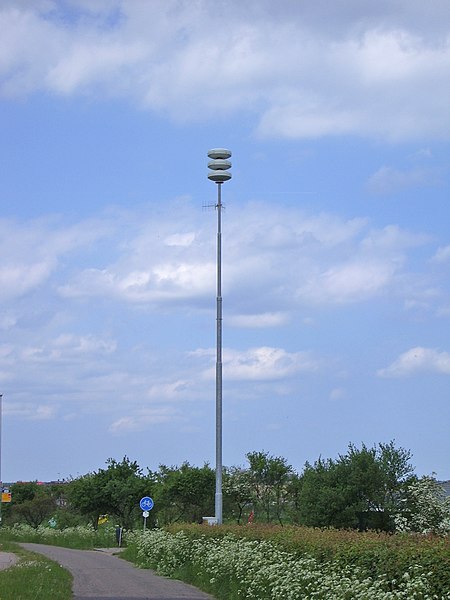 Waar ga ik wanneer de sirene beugels?
Waar ga ik wanneer de sirene beugels?
Where do I go when the siren rings?
In the US, every town has civil defense sirens. (I much prefer ‘civil defense’ to ’homeland security’, by the way). These were originally set up to warn of nuclear attack, but are now used to warn of natural disasters. If there is a flood, tornado, tsunami, or volcano alert in the Pacific Northwest (particularly prone to apocalyptic events), then the sirens go off and everyone seeks higher ground.
The Dutch have a similar system, tested on the first Monday of every month at 12 noon. The three-dish poles, above, are common in towns across the country, and signal an accelerating ascending tone, rather than the undulating wail used in the US.
What’s not clear is what to do here in response. When water comes, we head to high ground, but, well, there isn’t any here. The highest point, Drielandenpunt, is 20 km away and 300 meters up. A colleague said to head to the basement, not a good flood strategy. A friend tells me that the authoritative direction is to go home, close windows and doors, and turn on the TV or radio for further instructions. Sensible, but I may also mark the location of the nearest sightseeing boat as my ark.
Labels: Dutch Life
